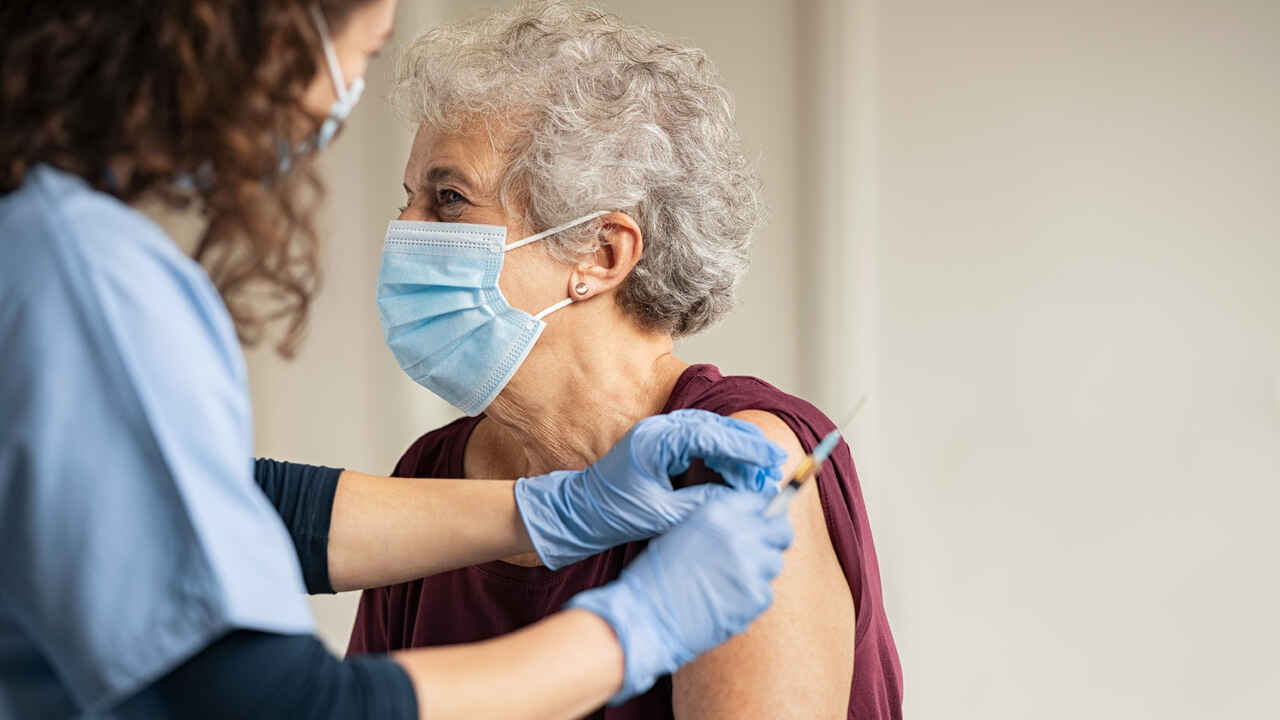 Here are answers to common questions about the COVID-19 vaccines currently being rolled out in the U.S.
Here are answers to common questions about the COVID-19 vaccines currently being rolled out in the U.S.
There’s no doubt that 2020 was a very difficult year, but some of the year’s most hopeful news came as the year was winding to a close. Two COVID-19 vaccines, one from Pfizer-BioNTech and one from Moderna, were approved for use in the United States and the first people in the U.S. were vaccinated in mid-December. As of January 4, 2021, more than 4.5 million people across the country had received their first dose of the vaccine and that number is expected to climb with each passing day.
The two currently available vaccines have been shown to be highly effective at preventing serious illness from COVID-19. Additional vaccines are also being developed and tested in clinical trials. As the vaccine rollout continues, you likely have a lot of questions about vaccine benefits, safety, side effects and availability, among other things. Here are answers to six common questions about the new vaccines.
Why should you get vaccinated against COVID-19?
Vaccines are powerful tools because they prepare your immune system to fight against viruses and diseases if you are exposed to them. Getting vaccinated against COVID-19 makes it far less likely you’ll be infected by COVID-19, helps prevent serious illness even if you do get COVID-19 and protects others because it slows the spread of the virus. Preventive measures such as wearing masks and social distancing have not done enough to stop the spread of COVID-19, which can cause serious illness and death. Vaccination is an important tool in stopping the global pandemic and the only way to get back to some sense of normalcy in our lives is for the vast majority of the population to be vaccinated.
Is the vaccine safe?
Due to the public health emergency, the Food and Drug Administration (FDA) granted emergency use authorization (EUA) for the Moderna and Pfizer-BioNTech vaccines. Before allowing EUA, the FDA had to determine that each vaccine’s known and potential benefits outweighed any known or potential risks. Clinical trials have shown that both vaccines are safe and more than 94% effective at preventing serious illness from COVID-19.
How do the vaccines work?
Both the Pfizer-BioNTech and Moderna vaccines contain messenger RNA (mRNA), which is used to train the cells in your body to make a protein that will activate your immune system to fight the coronavirus. This will leave cells (T-lymphocytes and B-lymphocytes) with a memory of how to fight the virus if they encounter it in the future. This makes it less likely you will become infected if you are exposed to the virus, and if you do get COVID-19, you will be less likely to experience serious symptoms or complications from the virus.
What should you expect when getting the vaccine?
The Pfizer-BioNTech and Moderna vaccines are given in a two-shot sequence, three or four weeks apart. After each shot, you’ll likely be monitored on site for 15 to 30 minutes to check for allergic reactions, although severe allergies to the vaccine are rare.
You can’t get COVID-19 from the vaccines because they do not contain the live virus, but mild side effects are normal and show that the vaccine is activating your immune system. Common side effects include:
-
-
- pain and/or swelling in the arm where you got the shot
- fever
- chills
- fatigue
- headache
-
Call your doctor if side effects last longer than a few days or if they’re causing concern. If you have known severe allergies to ingredients in the COVID-19 vaccine, you should not get the vaccine. If you have known severe allergies to other vaccines or injectable medicines, talk to your doctor before getting the vaccine to decide if it’s right for you.
Is the vaccine available to everyone?
Not yet. Since initial supplies are limited, experts have recommended that the first round of vaccines go to healthcare workers and residents of long-term care facilities. Frontline essential workers and people ages 75 and older are expected to be next in line, followed by people ages 65 to 74, those between the ages of 16 and 64 who have underlying conditions that raise their risk for serious COVID-19 complications and other essential workers. As the vaccine becomes more widely available, more people will be able to get vaccinated, although the exact timeline and phased rollout is still somewhat unclear.
Is it necessary to wear a mask and practice social distancing after getting vaccinated?
Yes. Preventive measures such as wearing masks, social distancing and frequent hand washing are still recommended to protect yourself and others from the coronavirus. It takes time to develop antibodies after the first dose and the vaccine offers better protection after the second dose. Although the vaccines are highly effective at preventing severe illness, more studies are needed to determine how effective they are at preventing COVID-19 infection over the long-term.